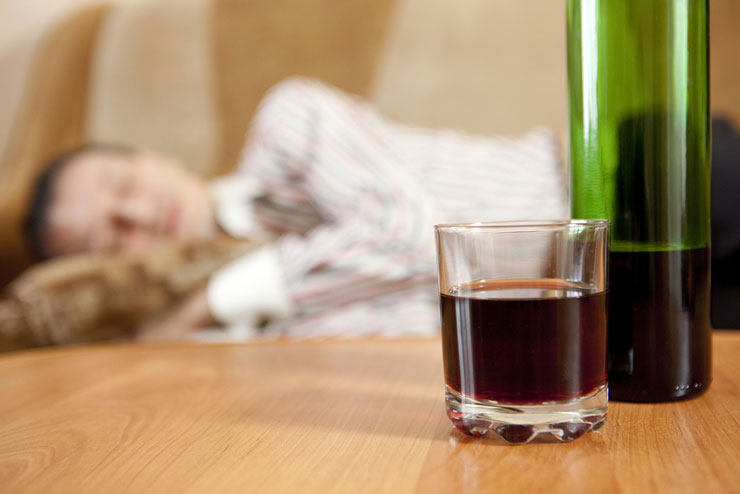Sleep readiness—getting the sleep you need for mission-essential tasks—is a vital part of military performance and wellness. Your habits and activities impact sleep quality and quantity. For example, having 1 or 2 drinks at the end of the day is something most people wouldn’t think affects sleep. After all, alcohol helps you feel more relaxed and is frequently used as a sleep aid. But the truth is, drinking can hurt your sleep readiness and performance.
Alcohol disrupts sleep
To understand the impact of alcohol on sleep, you need 2 important pieces of information: how brain activity changes while you sleep and how alcohol affects your brain function in general.
As you lie down to sleep, your brain activity starts to slow down. You lose consciousness and your muscles begin to relax. You progress into a deeper sleep as activity in your brain continues to slow and your muscles reach maximum relaxation. Yet during a specific stage known as REM (rapid eye movement) sleep, your brain displays high activity, similar to when you're awake, even though your body is completely paralyzed. Getting enough REM sleep each night is essential for your mental performance.
Alcohol interferes with brain function by slowing down its overall activity. That’s why many people feel relaxed and sleepy after having just 1 drink. At first, alcohol makes it easier to fall asleep. But throughout the night, alcohol prevents you from getting all the benefits of sleep. Healthy sleep requires periods of intense brain activity—REM sleep. You might be able to sleep through the night if you drink around bedtime, but you won't necessarily get the restorative benefits of REM sleep that make you feel rested the next day. Without enough REM sleep, you might find it difficult to focus your attention, learn and remember information, and regulate your emotions.
Quantity matters
Different amounts of alcohol have different impacts on sleep. A 12-ounce beer, a 5-ounce glass of wine, and a 1.5-ounce shot of liquor have the same amount of alcohol, and they all equal 1 drink.
- Low amounts of alcohol—less than 2 drinks for men and less than 1 drink for women—an hour before bedtime, reduce sleep quality by about 10%.
- Moderate amounts of alcohol—2 drinks for men and 1 drink for women—an hour before bedtime, decrease sleep quality by 24%.
- High amounts of alcohol—more than 2 drinks for men and more than 1 drink for women—an hour before bedtime, decrease sleep quality by about 40%.
Timing matters
Your body takes about 5 hours to eliminate half the alcohol you drink, which means if you have a drink a few hours before bedtime, some of that alcohol will still be in your body while you sleep. So drinking a 12-ounce beer at 1700 won't have as great an impact on your sleep as drinking the same beer at 2000.
Putting the pieces together
When you decide to enjoy a drink, use these tips to do so in a mindful way:
- Remember the differences between men and women when it comes to alcohol tolerance. Staying within low to moderate amounts of alcohol for women generally means having fewer drinks than men.
- Avoid drinking too much. The more you drink, the longer it will take for the alcohol to leave your body and the worse you’ll sleep—in both quality and quantity. Aim for low or moderate amounts of alcohol.
- Time your drinking as far as possible from your bedtime and in a way doesn't interfere with your safety, such as driving, or daily responsibilities.
- Have a contingency plan for when alcohol might disrupt your sleep. Getting less-than-ideal time in REM sleep can contribute to fatigue, sluggishness, and reduced performance. Use naps as an effective pick-me-up strategy when you don't get a good night’s sleep.
In addition to disrupting sleep, alcohol hurts reaction time, hand-eye coordination, and balance. Don’t drink if it could put you or others at risk. If you need help taking control of your alcohol use, check out other HPRC resources on the topic. Make sleep readiness a priority and learn practical sleep-optimization tips for better performance, mental health, and resilience.
